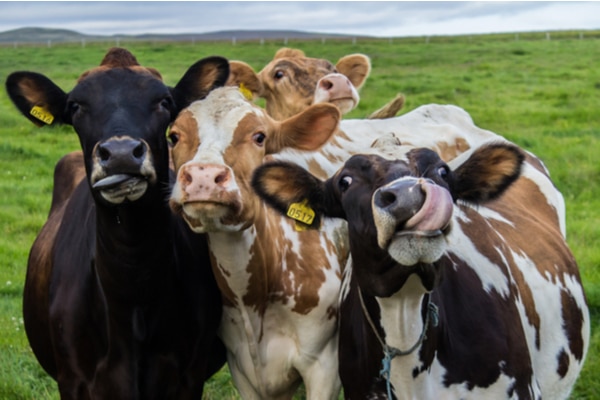
![]()
A cull of the national herd will unlikely be required to meet State carbon emission targets, according to recent reports. Speaking this morning on RTÉ’s Today with Claire Byrne, Minister for Climate, Eamon Ryan said the reduction is likely to occur naturally.
Mr Ryan’s comments follow yesterday’s publication from the Climate Change Advisory Council (CCAI) on two five-year carbon budget plans. As part of an overall plan to cut Ireland’s emissions by more than 50% by 2030, CCAI set annual targets for reducing carbon emissions.
Ireland begins the first quinquennium this year with a budget consisting of an annual reduction rate of 4.8%. The second carbon budget, running from 2026 to 2030, will see the reduction rate rise to 8.3%. According to reports, the CCAI uses 2018 data as a baseline for the reduction and in that year, Ireland emitted 68.3 million tonnes of CO2.
With a cut of just 1% amounting to 683,000 tones, Ireland could see a vast improvement in reducing emissions. The amount is said to equate to a reduction of 250,000 diesel cars, 170,000 homes using oil fired central heating, or 500,000 return flights from Dublin to New York.
Targets will be set for each sector in the Government’s climate plan on November 3rd and will be brought before Glasgow’s COP26 conference by Mr Ryan. The Minister for Climate claims the “ambitious” targets will protect the planet and people and based on science, not politics. He believes the quinquennium budgets are an advantage, as they will allow progress to be monitored.
Mr Ryan informs that all involved parties will need to assess the proposals, as different sectors would require different changes. As a change in farming is likely to take the longest, the Mister for Environment said this is an opportunity for a new generation of farmers to try new methods which protect land.
Chairwoman of the CCAI, Marie Donnelly said Ireland’s national herd is “very large”, with numbers surpassing the population of people. With time to save the planet running out, Ms Donnelly believes it is "is going to be a challenge. It’s one that we’re going to have to look at very seriously.”
Ryan, who is also Minister for Transport, believes the sector will be the “most difficult” as a reduction of 50% in emissions is required. He also warns that high-costing fossil fuels, and reliance on other countries for supply, highlight the requirement for a reduction in the energy sector. The Minister believes Ireland could be more competitive and mean more control for the country as it could be better to “tap into our own power sources”.
Mr Ryan also predicted a reduction in the cost of electric vehicles over the next two years, and believes there is a need to move public transport services closer to people, while remote working would reduce the need to commute.
Minister @EamonRyan has welcomed the first carbon budgets from the Climate Change Advisory Council as a significant milestone in Ireland’s efforts to tackle climate change.
Read more: https://t.co/QfoLSIacwA #ClimateActionIRL— Dept. Environment, Climate and Communications (@Dept_ECC) October 25, 2021